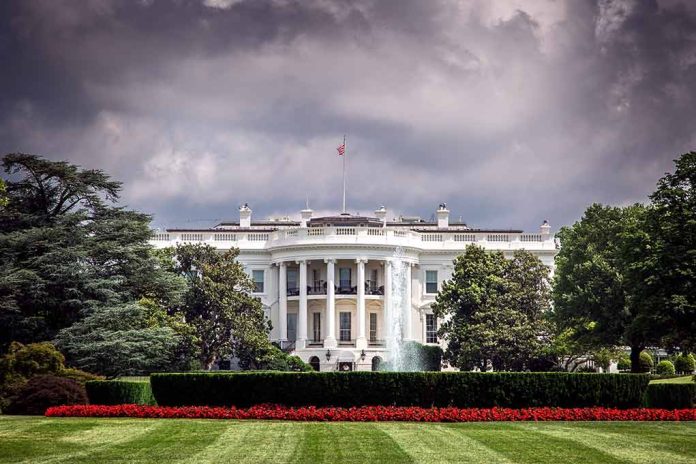
President Trump orders thorough review of SpaceX’s $22 billion federal contracts as his feud with Elon Musk threatens to disrupt America’s vital aerospace and defense operations.
Key Takeaways
- The White House has directed the Defense Department and NASA to review SpaceX contracts following the public dispute between President Trump and Elon Musk.
- Pentagon officials are considering reducing SpaceX’s role in a new U.S. missile defense system as part of potential retaliatory measures.
- SpaceX currently holds approximately $22 billion in federal contracts, including critical NASA astronaut transport and classified spy satellite programs.
- Musk recently criticized Trump, calling for his impeachment, but later attempted to retract some statements.
- The administration is preparing options for swift action if President Trump decides to take punitive measures against Musk’s companies.
Government Scrutinizes Billions in SpaceX Contracts
The White House has launched a comprehensive review of SpaceX’s federal contracts following the escalating public feud between President Trump and billionaire entrepreneur Elon Musk. Administration officials have directed both the Defense Department and NASA to gather detailed information on the billions of dollars in contracts currently held by Musk’s aerospace company. This unprecedented scrutiny comes as tensions between the two influential figures have spilled into public view, with Musk making critical comments about the president that he later attempted to walk back.
The review is designed to provide the administration with ready options should President Trump decide to take action against Musk and his companies. While no decisions have been made yet about canceling any contracts, Pentagon officials are already considering reducing SpaceX’s role in a new U.S. missile defense system. The situation highlights the significant entanglement between Musk’s commercial ventures and America’s national security and space exploration priorities.
Critical National Security Assets at Stake
SpaceX has become an indispensable partner for the U.S. government in both aerospace and defense sectors. The company’s Dragon spacecraft serves as a vital transport vehicle for NASA astronauts traveling to the International Space Station, a capability that became even more crucial after the retirement of the Space Shuttle program. Additionally, SpaceX is currently building a network of spy satellites under a classified contract with the National Reconnaissance Office, further cementing its importance to American defense and intelligence operations.
“We’ll take a look at everything,” said President Donald Trump.
The dispute took a concerning turn when Musk threatened to decommission SpaceX’s Dragon spacecraft, a move that would severely impact NASA’s ability to transport astronauts to orbit. This threat underscores the potential real-world consequences of the feud beyond mere political posturing. With SpaceX holding approximately $22 billion in federal contracts, any disruption to these agreements could have far-reaching implications for America’s space program and national security infrastructure.
Legal and Practical Challenges of Contract Termination
While the administration is gathering information on potential actions against Musk’s companies, the legality and practicality of canceling existing contracts remain unclear. Government contracts typically contain specific provisions regarding termination, and unilateral cancellations without proper cause could expose the government to legal challenges. The situation raises significant questions about the appropriate boundaries between political disputes and governmental business decisions that affect national security interests.
“There’s an irony here that Musk’s contracts could be under the same type of subjective political scrutiny that he and his DOGE team have put on thousands of other contracts,” said Scott Amey.
A White House spokesperson emphasized that all bids and contracts undergo a rigorous review process,” stated NASA, it would continue working with industry partners to meet the president’s space objectives. These careful statements suggest that despite the personal tensions between Trump and Musk, government agencies recognize the critical importance of maintaining essential space and defense capabilities. The administration must now balance the president’s personal grievances against the practical reality that SpaceX has become a cornerstone of America’s aerospace infrastructure.





